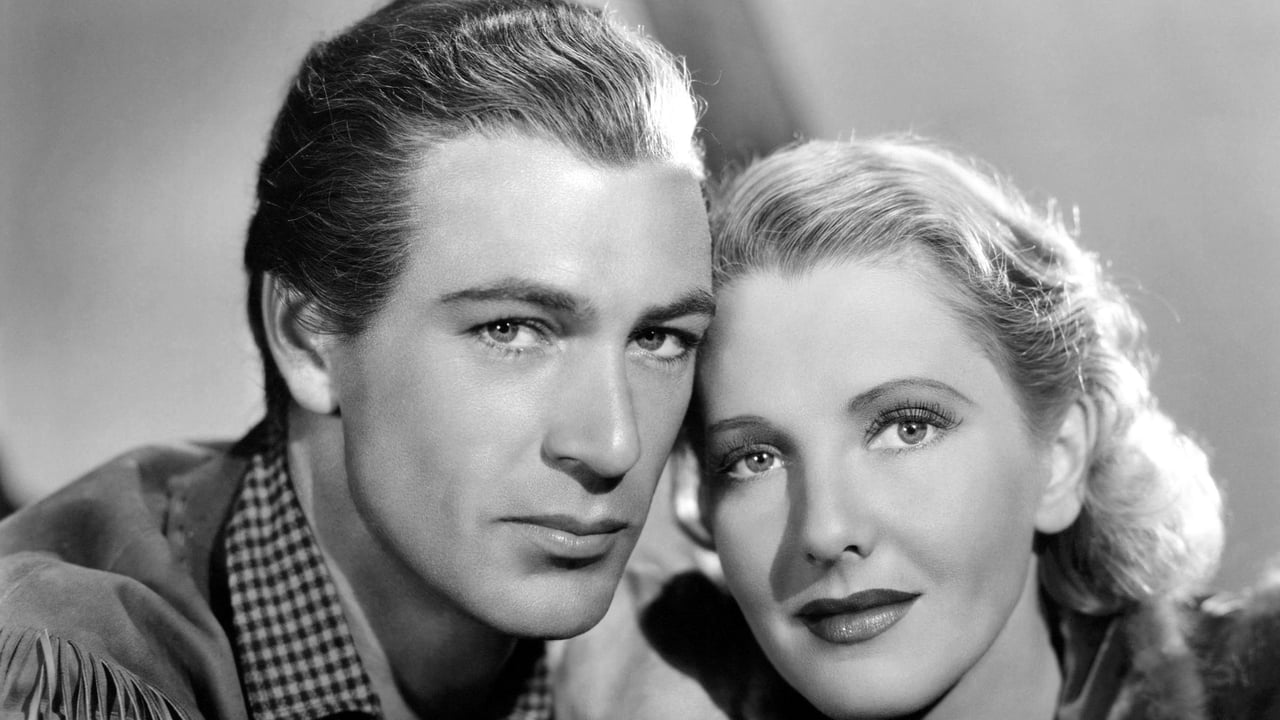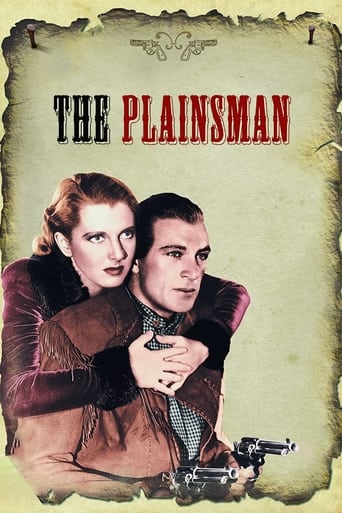

Too much of everything
... View MorePeople are voting emotionally.
... View MoreHow sad is this?
... View MoreIt's fun, it's light, [but] it has a hard time when its tries to get heavy.
... View MoreThis is an entertaining Western, but my impression is that it's fairly lacking any real historical accuracy. But, that's Cecil B. DeMille (director).Gary Cooper (as Wild Bill Hickok) is an off-and-on romantic interest to Jean Arthur (as Calamity Jane). They are both friends with James Ellison (as "Buffalo Bill" Cody). Charles Bickford is the bad guy here (as usual in this type of film he is selling guns to the Indians). And, watch closely and you'll see Anthony Quinn as an Indian.Shoot 'em up! To the extent that during a battle with the Indians, Hickok and Cody kill an unbelievable number of Indians...and I mean ridiculously unbelievable. But, despite its historical inaccuracies (a major character dies in a way that was totally inaccurate to the facts), it's fun, and well worth watching.Cooper and Arthur are excellent here, although this isn't the kind of role we usually think of for Jean Arthur. I wasn't familiar with James Ellison, but he was also quite good (this film was the pinnacle of a rather thin career), and there's good chemistry between Cooper and Ellison. So if you want to have fun, tune in. If you want to learn about Western history, don't.
... View MoreThe Plainsman is directed by Cecil B. DeMille and written by Courtney Ryler Cooper & Frank J. Wilstach. It stars Gary Cooper, Jean Arthur, James Ellison, Charles Bickford, Helen Burgess and Paul Harvey. Music is by George Antheil and cinematography by Victor Milner. Film is a fictionalised account of the relationships involving Wild Bill Hickok (Cooper), Calamity Jane (Arthur), Buffalo Bill (Ellison) and George Custer (John Miljan).Master of the epic DeMille crafts a big and bold Western that's finely acted, interesting in its telling and big on idealism. You obviously have to forget real time lines, this is a splicer as DeMille and Co take some of the Wild West's most famous characters and stir them into one Oater stew! Friendships and affairs of the heart form the basis of thematics, with the war against the redskin giving the characters reason for being. Gun running and politico musings drift in and out of the narrative but leave a mark, while DeMille proves classy in action construction as a number of warfare sequences raise the pulse considerably.The flip-side...There are no bad apples in the cast (Cooper wonderfully macho, Arthur whip-crackingly gorgeous and Bickford suitably weasel like), though Burgess doesn't quite grasp the dramatic thrust of being Buffalo Bill's good woman. The running time is a touch too long, with several passages of dialogue serving only as time filling exercises, while the back screen projection work is irritable if a little understandable given the time of production. Ultimately there are flaws that make this only a comfortable recommendation to classic era Western fans who can accept it as a 1930s dressed up bit of frontier malarkey. Casual observers, mind, are unlikely to get past the historical hodge-podge and hooray idealism. 7/10
... View MoreWith the end of the North American Civil War, the manufacturers of repeating rifles find a profitable means of making money selling the weapons to the North American Indians, using the front man John Lattimer (Charles Bickford) to sell the rifles to the Cheyenne. While traveling in a stagecoach with Calamity Jane (Jean Arthur) and William "Buffalo Bill" Cody (James Ellison) and his young wife Louisa Cody (Helen Burgess) that want to settle down in Hays City managing a hotel, Wild Bill Hickok (Gary Cooper) finds the guide Breezy (George Hayes) wounded by arrows and telling that the Indians are attacking a fort using repeating rifles. Hickok meets Gen. George A. Custer (John Miljan) that assigns Buffalo Bill to guide a troop with ammunition to help the fort. Meanwhile the Cheyenne kidnap Calamity Jane, forcing Hickok to expose himself to rescue her.The dated "The Plainsman" is a great deception, with a pretentious and shallow story without historical accuracy, "politically incorrect" in the present days and a terrible screenplay that wastes Gary Cooper and Jean Arthur. Their performances are below average with awful characters. The best part is the beginning, with the inception of the lobby of the greedy manufacturers of weapons using the repeating rifles to provide Indian (and also "white man") annihilation in the name of the pockets full of money. My vote is five.Title (Brazil): "Jornadas Heróicas" ("Heroic Journeys")
... View MoreSurely the only Western featuring Wild Bill Hickok, Calamity Jane, Buffalo Bill Cody, George Custer, and Abraham Lincoln! After a slow start, it hits its stride for a while but eventually runs out of ideas and seems to go on forever. Cooper tries hard to make Hickok come alive and Arthur brings her usual spunk to Calamity Jane but Ellison is over matched as Buffalo Bill. DeMille's direction is uninspired; it seems he was more interested in creating an epic than telling a good story. There is enough decent material here that a good director and editor could have turned it into an exciting movie of about 90 minutes. Sadly, Burgess, who plays Mrs. Cody in her film debut, died a year later at age 20.
... View More